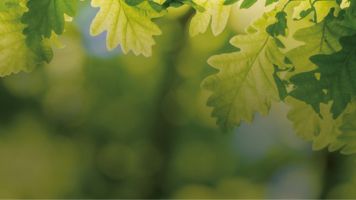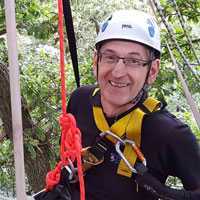'We can't plant enough forests to make climate change go away,' says Professor Rob MacKenzie
The huge increase in carbon dioxide is changing the balance of our atmosphere. Our trees and plants absorb as much as they can, but at what risk to themselves? The extra carbon processing they do means their defences are down when bugs and diseases attack them.
 Forests are the great cradles of biodiversity on land. Our woodlands also help soak up the huge increase in carbon dioxide (CO2) in our air, protecting us from the worst of climate change. Will they reach a tipping point where they can no longer do either? And will the global spread of pests and diseases damage our forests? Help us find new clever ways to protect both our air and food supplies.
Forests are the great cradles of biodiversity on land. Our woodlands also help soak up the huge increase in carbon dioxide (CO2) in our air, protecting us from the worst of climate change. Will they reach a tipping point where they can no longer do either? And will the global spread of pests and diseases damage our forests? Help us find new clever ways to protect both our air and food supplies.
You can secure the future of the food we eat and the base of all life on land
You can help the Birmingham Institute of Forest Research (BIFoR) provide vital information on how our forests work, so they can be kept safe. BIFoR hosts the only experiment of its kind to use real, mature, temperate woodland, delivering the most reliable predictions of the future state of these forests. Our new glasshouse is testing how climate change may affect young trees and food crops, in a sealed environment where CO2, temperature, light, diseases and pests can be fully controlled. The findings will influence governments to take seriously the threat to our natural environment.
 Our woodlands need your support
Our woodlands need your support
'We created this unique lab in the trees in a mature oak woodland. Rings of towers pump CO2 into circles of trees, simulating future atmosphere changes. The brightest researchers, aided by robot sensors, measure how the trees and soil responds.'
Professor Rob MacKenzie, Director of BIFoR (Birmingham Institute of Forest Research)
Make a donation
You could help our trees and crops get ready for whatever climate change throws at them.
Learn more about Birmingham’s research into forests and climate change.